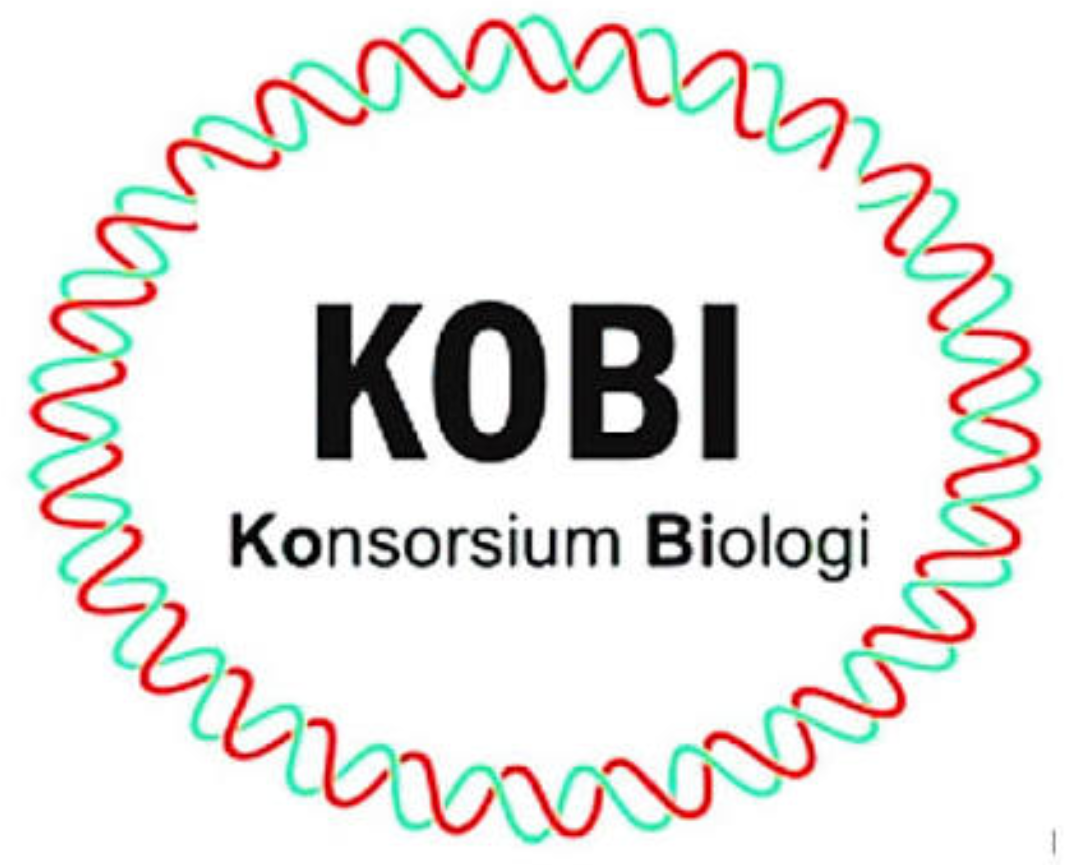Title:
The Relationship between the Application of Sustainable Principles and Students' Waste Segregation Behavior at SMAN 1 Singosari
Author:
Abstract
Keywords
Full Text:
PDFReferences
Ali, E. B., & Anufriev, V. P. (2020). Towards Environmental Sustainability in Russia: Evidence from Green Universities. Heliyon, 6(8), e04719. https://doi.org/10.1016/j.heliyon.2020.e04719
Amin, M. N., Winarto, Y., & Marlina, A. (2019). Penerapan Prinsip Arsitektur Berkelanjutan pada Perencanaan Kampung Pangan Lestari di Mojosongo, Kecamatan Jebres, Kota Surakarta. Senthong, 2(2), 383–394.
Andina, E. (2019). Analisis Perilaku Pemilahan Sampah di Kota Surabaya. Jurnal Masalah-Masalah Sosial, 10(2), 119–138. https://doi.org/10.22212/aspirasi.v10i2.1424
Apinhapath, C. (2014). Community Mapping and Theory of Planned Behavior as Study Tools for Solid Waste Management. Journal of Waste Management, 2014, 1–7. https://doi.org/10.1155/2014/934372
Escario, J.-J., Rodriguez-Sanchez, C., & Casaló, L. V. (2020). The Influence of Environmental Attitudes and Perceived Effectiveness on Recycling, Reducing, and Reusing Packaging Materials in Spain. Waste Management, 113, 251–260. https://doi.org/10.1016/j.wasman.2020.05.043
Grilli, G., & Notaro, S. (2019). Exploring the Influence of an Extended Theory of Planned Behaviour on Preferences and Willingness to Pay for Participatory Natural Resources Management. Journal of Environmental Management, 232, 902–909. https://doi.org/10.1016/j.jenvman.2018.11.103
Gu, B., Tang, X., Liu, L., Li, Y., Fujiwara, T., Sun, H., … Jia, R. (2021). The Recyclable Waste Recycling Potential towards Zero Waste Cities - A Comparison of Three Cities in China. Journal of Cleaner Production, 295, 126358. https://doi.org/10.1016/j.jclepro.2021.126358
Gusti, A., Isyandi, B., Bahri, S., & Afandi, D. (2015). Hubungan Pengetahuan, Sikap dan Intensi Perilaku Pengelolaan Sampah Berkelanjutan pada Siswa Sekolah Dasar di Kota Padang. Dinamika Lingkungan Indonesia, 2(2), 100–107. https://doi.org/10.31258/dli.2.2.p.100-107
Kurniati, E., Mirawati, M., Rudiyanto, R., Fitriani, A. D., Rengganis, I., & Justicia, R. (2019). Implementasi Program Anak Peduli Lingkungan Melalui Kegiatan Memilah Sampah. Early Childhood: Jurnal Pendidikan, 3(1), 1–6. https://doi.org/10.35568/earlychildhood.v3i1.433
Kurniaty, Y., Nararaya, W. H. B., Turawan, R. N., & Nurmuhamad, F. (2016). Mengefektifkan Pemisahan Jenis Sampah sebagai Upaya Pengelolaan Sampah Terpadu di Kota Magelang. Varia Justicia, 12(1), 135–150.
Maulina, A. S. (2012). Identifikasi Partisipasi Masyarakat dalam Pemilahan Sampah di Kecamatan Cimahi Utara serta Faktor yang Mempengaruhinya. Jurnal Perencanaan Wilayah Dan Kota, 23(3), 177–196.
Mir, I. S., Cheema, P. P. S., & Singh, S. P. (2021). Implementation Analysis of Solid Waste Management in Ludhiana City of Punjab. Environmental Challenges, 2, 100023. https://doi.org/10.1016/j.envc.2021.100023
Mulasari, S. A., Husodo, A. H., & Muhadjir, N. (2016). Analisis Situasi Permasalahan Sampah Kota Yogyakarta dan Kebijakan Penanggulangannya. KEMAS: Jurnal Kesehatan Masyarakat, 11(2), 96–106. https://doi.org/10.15294/kemas.v11i2.3989
Munir, M. (2016). Prinsip Biologi dalam Lingkungan Berkelanjutan. Al-Ard: Jurnal Teknik Lingkungan, 2(1), 31–37. https://doi.org/10.29080/alard.v2i1.131
Orset, C., Barret, N., & Lemaire, A. (2017). How Consumers of Plastic Water Bottles are Responding to Environmental Policies? Waste Management, 61, 13–27. https://doi.org/10.1016/j.wasman.2016.12.034
Paradita, L. I. (2018). Pemilahan Sampah: Satu Tahap Menuju Masyarakat Mandiri Dalam Pengelolaan Sampah. Berdikari: Jurnal Inovasi Dan Penerapan Ipteks; Vol 6, No 2 (2018): AugustDO - 10.18196/Bdr.6245, 6(2), 184–194. https://doi.org/10.18196/bdr.6245
Poluakan, L. C., Purwaningrum, P., & Indrawati, D. (2018). Environmental Risk Considerations in the Development of Solid Waste Facility: Case Study Rawa Kucing Solid Waste Facility, Tangerang City. Indonesian Journal of Urban and Environmental Technology, 1(2), 124–136. https://doi.org/10.25105/urbanenvirotech.v1i2.2822
Puspawati, C., & Besral, B. (2008). Pengelolaan Sampah Berbasis Masyarakat di Kampung Rawajati Jakarta Selatan. Kesmas: Jurnal Kesehatan Masyarakat Nasional (National Public Health Journal); Vol. 3 No. 1 Agustus 2008DO - 10.21109/Kesmas.V3i1.237, 3(1), 9–15. https://doi.org/10.21109/kesmas.v3i1.237
Ratnasari, A., Asharhani, I. S., Sari, M. G., Hale, S. R., & Pratiwi, H. (2019). Edukasi Pemilahan Sampah Sebagai Upaya Preventif Mengatasi Masalah Sampah Di Lingkungan Sekolah. Prosiding Konferensi Nasional Pengabdian Kepada Masyarakat Dan Corporate Social Responsibility (PKM-CSR), 2, 652–659. https://doi.org/10.37695/pkmcsr.v2i0.498
Richter, A., Ng, K. T. W., Karimi, N., & Chang, W. (2021). Developing a Novel Proximity Analysis Approach for Assessment of Waste Management Cost Efficiency in Low Population Density Regions. Sustainable Cities and Society, 65, 102583. https://doi.org/10.1016/j.scs.2020.102583
Robina-Ramírez, R., & Medina-Merodio, J.-A. (2019). Transforming Students’ Environmental Attitudes in Schools through External Communities. Journal of Cleaner Production, 232, 629–638. https://doi.org/10.1016/j.jclepro.2019.05.391
Robina-Ramírez, R., Medina Merodio, J. A., & McCallum, S. (2020). What Role do Emotions Play in Transforming Students’ Environmental Behaviour at School? Journal of Cleaner Production, 258, 120638. https://doi.org/10.1016/j.jclepro.2020.120638
Sanusi, I., Cahyadi, H., & Respati, R. (2016). Analisis Pemilahan Persampahan Berskala Individual Rumah Tangga (Studi Kasus Kelurahan Panarung, Kecamatan Pahandut, Kota Palangka Raya, Kalimantan Tengah). Media Ilmiah Teknik Lingkungan (MITL), 1(1), 42–44. https://doi.org/10.33084/mitl.v1i1.138
Schmidt, S., Laner, D., Van Eygen, E., & Stanisavljevic, N. (2020). Material Efficiency to Measure the Environmental Performance of Waste Management Systems: A Case Study on PET Bottle Recycling in Austria, Germany and Serbia. Waste Management, 110, 74–86. https://doi.org/10.1016/j.wasman.2020.05.011
Singh, N., Duan, H., & Tang, Y. (2020). Toxicity Evaluation of E-waste Plastics and Potential Repercussions for Human Health. Environment International, 137, 105559. https://doi.org/10.1016/j.envint.2020.105559
Wang, F., Peng, X., Wei, R., Qin, Y., & Zhu, X. (2019). Environmental Behavior Research in Resources Conservation and Management: A Case Study of Resources, Conservation and Recycling. Resources, Conservation and Recycling, 141, 431–440. https://doi.org/10.1016/j.resconrec.2018.10.024
Zhu, C., Fan, R., Luo, M., Lin, J., & Zhang, Y. (2020). Urban Food Waste Management with Multi-agent Participation: A Combination of Evolutionary Game and System Dynamics Approach. Journal of Cleaner Production, 275, 123937. https://doi.org/10.1016/j.jclepro.2020.123937
DOI: https://doi.org/10.31002/ijobe.v5i1.6027
Article Metrics
Abstract view : 0 timesPDF - 0 times
Cited By
Refbacks
- There are currently no refbacks.
Copyright (c) 2022 Indonesian Journal of Biology Education

This work is licensed under a Creative Commons Attribution-NonCommercial-ShareAlike 4.0 International License.

This work is licensed under a Creative Commons Attribution-NonCommercial-ShareAlike 4.0 International License.
indexed by :
Jalan Kapten Suparman 39 Magelang, Jawa Tengah, Indonesia 56116
Phone (0293) 364113 Fax (0293) 362438
Website: http://jurnal.untidar.ac.id/index.php/ijobe










 Abstract views : 0
|
Abstract views : 0
| PDF views : 0
PDF views : 0

